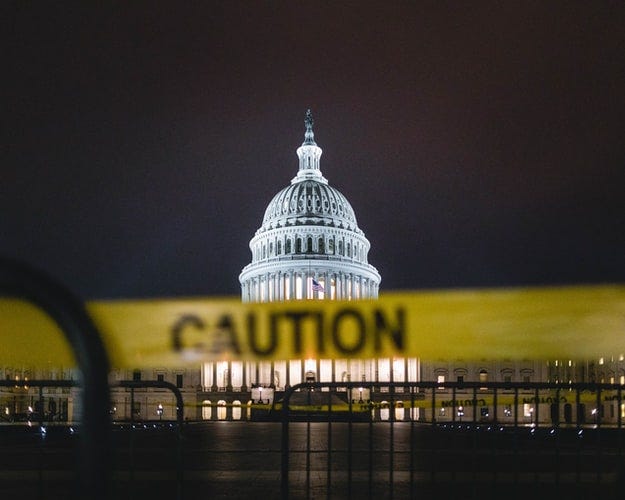Is the GOP Finally Emerging From Its Trump Trance?
By: Prema Rahman, MPAC Human Security Program Manager

The violent insurrection led by pro-Trump extremists against our Capitol last week was a catalytic moment in American history. Our nation’s democracy and constitutional processes came under direct attack, incited by none other than the President himself. The vapid law enforcement response to the predominantly white rioters made it impossible for federal agencies and lawmakers to ignore institutional bias and racism any longer. For many Republicans within Congress and Trump’s cabinet, the seditious acts of January 6th broke the Trump trance they were in. Some, including outgoing Senator Kelly Loeffler (R-GA), decided to no longer object to President-elect Biden’s confirmation. The steady decline of Trump’s influence became even more apparent earlier this week, when 10 Republicans in the House voted for impeachment. After years of supporting Trump, without raising any flags against his bigoted policies, the GOP seems to be in the midst of a quiet awakening. What remains to be seen, however, is just how significant this shift will be for the party.
Though the Republican party’s identification with nativism and white nationalism predate the Trump presidency by decades, the last four years have been marked by staunch partisanship, whereby its members have time and time again prioritized alignment with Trump policies over the security and wellbeing of America. Why, then, have some Republicans suddenly begun to separate themselves from Trumpism? In the words of several lawmakers, it was the threat to democracy, in clear display at the Capitol last week, that was the breaking point. Others, like Congressman Dan Newhouse (R-WA), cited Trump breaking his oath of office, or the fact that he put their lives at risk by fueling the violent behavior of his supporters. More cynically, perhaps the downward trajectory of Trump’s approval ratings have emboldened Republican leaders to finally oppose him without fearing backlash from their constituents.
While the evidence presented in the 2019 impeachment proceedings were contested, this time, every member of Congress has been a direct witness and a target of the impeachable offense. Unlike last time, where every House Republican member supported Trump, their leaders did not whip the votes this time around. As in, they did not pressure their party members to vote against impeachment. Congresswoman Liz Cheney (R-WY), the third most senior Republican in the House, called it a “vote of conscience”. The Senate will likely not hold an impeachment vote until Biden is inaugurated on the 20th of this month, but several key GOP Senators, including current Majority Leader Mitch McConnell (R-KY), Sen. Lisa Murkowski (R-AK) and Sen. Mitt Romney (R-UT), have already expressed interest in impeachment. The Senate proceedings will certainly be a litmus test for the party and its commitment to protecting our democracy and, ultimately, the American people.
Trump is a product of decades of growing populism and divisive politics within the Republican party ethos. In other words, the party bred the seditious and near-autocratic leader. If Trump is left free to run for the presidency in 2024 or even allowed to walk free of any actual punishment for his seditious behavior, this failure will set a dangerous precedent for American politics and threatens the legitimacy of our whole system of government. The quiet awakening amongst GOP politicians is indicative of a realization of this trend. For the Republican party to uphold its responsibility to “defend the Constitution of the United States against all enemies, foreign and domestic”, its members need to lean into this change in tide or risk the party succumbing to the insidious designs of domestic extremists and white nationalists.